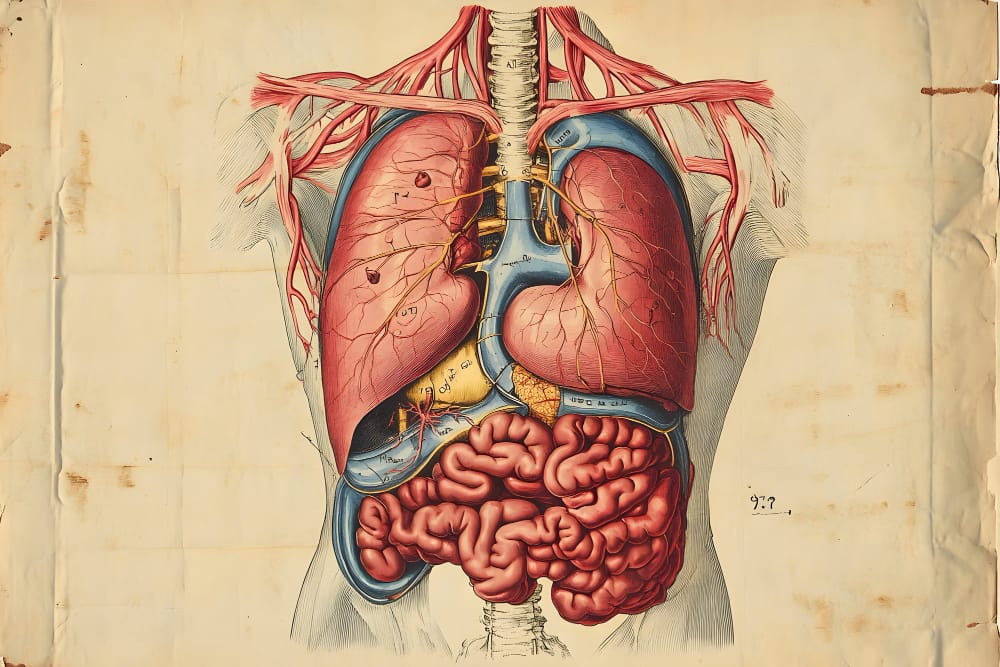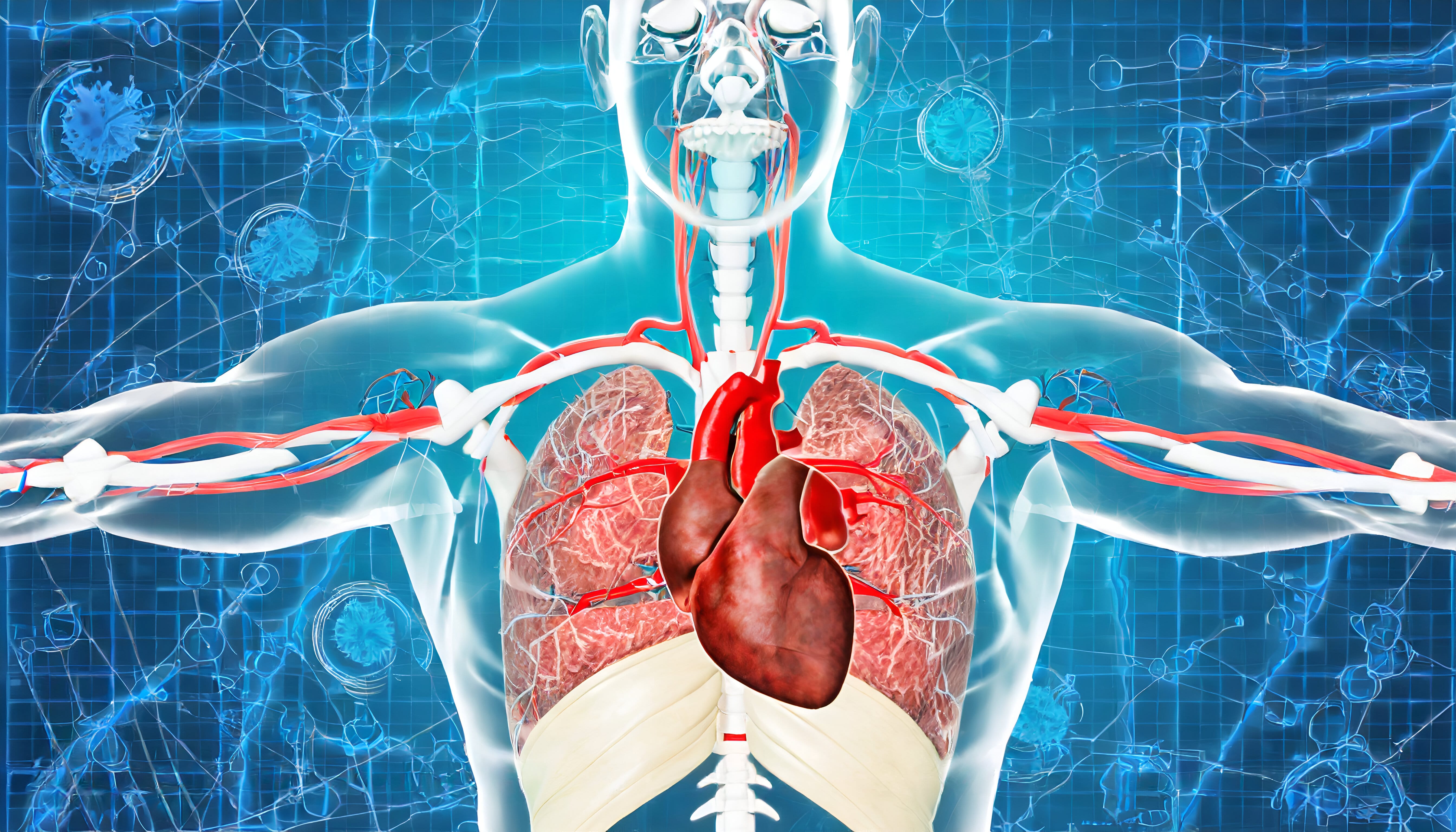
Stress is a part of life. Work pressures, family responsibilities, or even sitting in traffic can trigger it. A little stress isn’t always a bad thing. In fact, it can actually help us stay focused and motivated. But when it becomes constant, it starts affecting more than just how we feel.
Many people don’t realise the impact stress has on the body. It’s not just mental; it can manifest physically. The body is always trying to keep up, but over time, chronic stress can wear it down.
The good news is that stress isn’t something we just have to live with. By understanding how it affects different systems in the body, we can take simple steps to manage it before it leads to bigger issues
How the body reacts to stress
Stress triggers a complex chain reaction in the body, preparing it to handle perceived threats. This response, often called the fight-or-flight response, is an evolutionary survival mechanism that helps us react quickly in dangerous situations. While it can be beneficial in short bursts, prolonged activation can lead to significant health issues.
The fight-or-flight-response
When faced with stress—whether it’s a tight deadline, an argument, or a life-threatening event—the body shifts into high alert. This process is primarily controlled by the autonomic nervous system (ANS) and the hypothalamic-pituitary-adrenal (HPA) axis.
1. The brain detects a threat
The amygdala, a part of the brain that processes emotions, identifies a stressor and signals the hypothalamus. The hypothalamus acts as the command center, triggering the stress response.
2. Release of stress hormones
The hypothalamus sends signals to the adrenal glands, which then release adrenaline (epinephrine), noradrenaline, and cortisol—the primary stress hormones. These chemicals prepare the body for immediate action.
3. Physical changes in the body
As stress hormones flood the bloodstream, several physiological changes occur:
- Heart rate and blood pressure increase to pump more oxygen-rich blood to vital organs and muscles.
- Breathing becomes faster and shallower to deliver more oxygen.
- Muscles tense up, preparing for movement or defence.
- Digestion slows down, as energy is diverted to more immediate needs.
- Pupils dilate to enhance vision.
- Blood sugar levels rise, providing a quick energy boost.
4. Return to baseline (if the stressor passes)
Once the stressor is removed, the parasympathetic nervous system (PNS) takes over, helping the body return to a balanced state. Heart rate slows, muscles relax, and digestion resumes. However, if stress is constant, the body struggles to reset, leading to chronic stress and long-term health risks.
What happens when stress becomes chronic?
Short-term stress helps us stay alert and respond to challenges, but when stress becomes a daily occurrence, it can wreak havoc on the body. Persistent activation of the HPA axis leads to:
- Consistently elevated cortisol levels, which suppress the immune system, disrupt sleep, and increase the risk of weight gain and metabolic disorders.
- Increased inflammation, contributing to chronic pain and diseases like heart disease and diabetes.
- Mental health struggles, including anxiety, depression, and burnout.
Physical impact of stress on the body
Musculoskeletal system
Ever noticed your shoulders creeping up to your ears when you’re stressed? That’s your body’s way of preparing for action. Stress causes muscles to tighten, especially in the neck, shoulders, and back. If stress is short-term, the muscles relax once the stressor passes. But when stress is constant, muscles stay tense, leading to:
- Tension headaches and migraines
- Chronic neck, shoulder, and back pain
- Jaw pain or teeth grinding (bruxism)
Over time, persistent muscle tension can contribute to conditions like chronic pain disorders and even impact posture.

Cardiovascular system
During stressful moments, your heart beats faster, and blood vessels constrict to push more blood to muscles and vital organs. This is useful in an emergency, but over time, it can lead to:
- High blood pressure (hypertension)
- Increased risk of heart disease, heart attacks, and strokes
- Inflammation in blood vessels, which can contribute to arterial damage

Respiratory system
Stress can change the way we breathe, making it shallow and rapid. For those with pre-existing respiratory conditions like asthma or COPD, stress can make symptoms worse and even trigger attacks. Hyperventilation, which can be caused by anxiety and panic attacks, may lead to dizziness and a feeling of breathlessness.

Digestive system
The gut and brain are closely linked, which is why stress often brings stomach discomfort. Stress can:
- Slow digestion, causing bloating and constipation
- Speed up digestion, leading to diarrhea
- Trigger acid reflux and heartburn
- Worsen conditions like Irritable Bowel Syndrome (IBS) and ulcers
Chronic stress also alters gut bacteria, which can affect immune function, mood, and overall gut health.
Endocrine system
The HPA axis plays a key role in how the body responds to stress. Chronic stress keeps the cortisol hormone elevated, which can lead to:
- Increased appetite and weight gain (especially belly fat)
- Higher blood sugar levels, increasing the risk of type 2 diabetes
- Disruptions in other hormones, affecting mood, energy levels, and metabolism
Reproductive system
For both men and women, stress can take a toll on reproductive health. High stress levels can lead to:
- Reduced libido (sex drive)
- Irregular or painful menstrual cycles in women
- Lower sperm count and testosterone levels in men
- Increased risk of complications during pregnancy
Chronic stress has also been linked to difficulties in conceiving, making stress management important for fertility.
Immune system
Short bursts of stress can temporarily boost the immune system. However, long-term stress weakens it, making the body more vulnerable to infections. Chronic stress can:
- Slow down wound healing
- Increase susceptibility to colds, flu, and infections
- Trigger or worsen autoimmune conditions
Stress-induced inflammation has also been linked to chronic diseases like heart disease, diabetes, and even cancer.
Emotional and behavioural effects of stress
How stress affects emotions and mental health
Stress is closely linked to mental health, influencing how we feel, think, and react to situations. Some of the most common emotional effects of chronic stress include:
- Anxiety and constant worry – Stress can put the brain in a state of hyper-awareness, making it hard to relax or stop overthinking.
- Irritability and mood swings – People under stress often feel easily frustrated, short-tempered, or overwhelmed by small things.
- Depression and low mood – Long-term stress depletes serotonin and dopamine, the brain’s “feel-good” chemicals, which can contribute to feelings of sadness and hopelessness.
- Lack of motivation or focus – Stress makes it harder to concentrate, remember things, or stay productive.
- Feeling overwhelmed or out of control – When stress builds up, even simple tasks can feel unmanageable.
Stress can also worsen existing mental health conditions like anxiety disorders, depression, and PTSD.

How stress changes behaviour
The emotional strain of stress often leads to noticeable changes in behaviour. These habits may develop as a way to cope, but over time, they can become harmful:
- Avoiding social interactions – People under stress may isolate themselves or withdraw from friends and family.
- Increased use of alcohol, caffeine, or smoking – Many turn to stimulants or substances for relief, which can lead to dependency.
- Overeating or undereating – Stress can trigger emotional eating (often craving sugary or fatty foods) or loss of appetite.
- Poor sleep habits – Difficulty falling asleep, waking up frequently, or oversleeping are common signs of stress.
- Procrastination and lack of productivity – Stress can make people feel stuck, leading to avoidance of responsibilities.
- Restlessness or nervous habits – Fidgeting, nail-biting, and excessive scrolling on phones are common coping mechanisms.
How to manage and reduce stress
While we can’t eliminate stress completely, we can manage it. Simple lifestyle changes can help keep stress levels in check and prevent long-term health effects.
- Move your body – Exercise helps lower cortisol and relieve muscle tension. Even a daily walk can make a difference.
- Breathe and relax – Deep breathing, meditation, and stretching activate the body’s relaxation response.
- Prioritise sleep – Stick to a consistent schedule, limit screens before bed, and create a calming bedtime routine.
- Eat well – Avoid excessive caffeine and processed foods. Focus on whole foods, healthy fats, and staying hydrated.
- Stay connected – Talking to friends, family, or a professional can help manage stress before it builds up.
- Set boundaries – Learn to say no, prioritise tasks, and make time for activities that bring you joy.
- Physiotherapy for stress relief – Stress often causes muscle tension, headaches, and postural strain. Hands-on treatment, guided movement, and relaxation techniques used in physiotherapy can help release built-up tension and restore balance.

Take control of your stress today
Stress is unavoidable, but it doesn’t have to control your health. When left unchecked, it can build up in the body, leading to tight muscles, pain, fatigue, and even long-term health issues. Recognising the impact of stress on the body is the first step in managing it before it takes a toll.
If you’re feeling the physical effects of stress, we’re here to help. At Integrity Physiotherapy in South Perth, we focus on gentle, effective treatments—including physio for neck pain and headache relief—to help your body recover and feel its best.
Book an appointment today and start feeling the difference.




